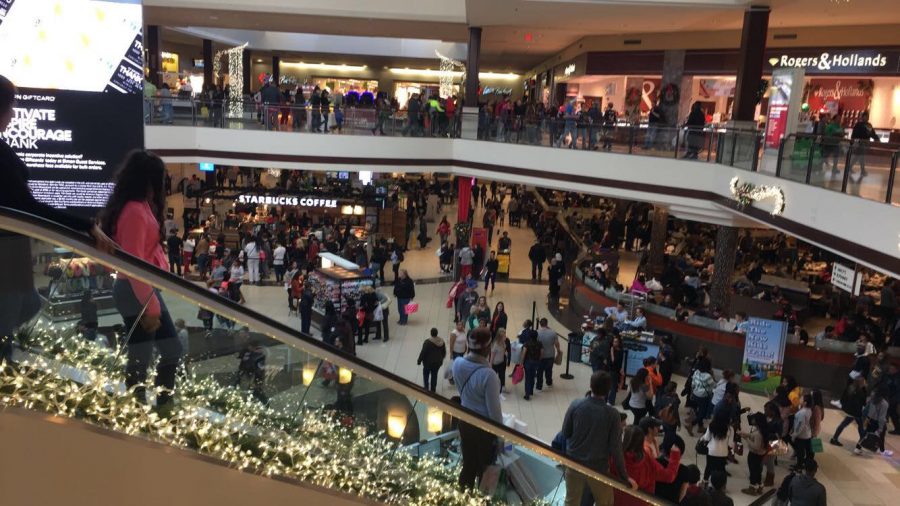What is Small Business Saturday? In the words of the United States Small Business Administration, it is “a day to celebrate and support small businesses and all they do for their communities.” As obscenely large corporations tighten their grasp on both the American and global markets, this is a valiant effort to help small businesses stay afloat, particularly during the holiday season. However, the notion of one day during the busiest shopping weekend of the year acting as a levee against the ceaseless wave of empty commercialism falls short of its valid intentions.
The placement of this celebration of small businesses on the calendar is problematic in and of itself. Small Business Saturday fell on Saturday, November 24th this year, nestled in the middle of the kickoff of holiday shopping. Black Friday as a commercial concept has solidified itself as a fixture of the American holiday season and it does not look as if it’s going away any time soon. The increasing intensity of holiday shopping, spurred by major companies opening earlier and earlier each year, can burn out shoppers who could help support local businesses over the weekend’s remainder.
Additionally, the timing of Small Business Saturday further complicates labor issues typically associated with Black Friday. Not only are employees forced to work, taking them away from their families, the hostility and impoliteness of the shopping crowds are well-known. Thanksgiving is a holiday about coming together, and more often than not, that coming together is quite literal. Approximately 54 million Americans traveled more than 50 miles for the holiday this year, according to the American Automobile Association.
These are not shoppers in the mentality of appreciating the hard work of retailers big or small. If Americans want to celebrate and promote local family-owned businesses, which is a righteous and noble cause, then Small Business Saturday should come the week following Black Friday. Remove the association of these special, smaller sales from the commercialized yuletide nightmare that is Black Friday and allow it to stand on its own, shining more of a light on the benefits the day could have on local peers and community members.
Though it is quite different from the chaos of the crowds that one may find during a Black Friday sale, there is another complicating factor present on this shopping weekend: Cyber Monday. Whereas Black Friday is representative of the stranglehold that superstores such as Target have on the local commercial markets, Cyber Monday is the natural result of a much greater threat to small businesses: the internet. Cyber Monday is a higher manifestation of the existential threat that small businesses face.
Consumers often justify their patronage of larger companies over smaller businesses solely for the increased variety of products available. Not only can a shopper find nearly anything on the internet, they can find it in the comfort of their own homes. As the holiday weekend becomes more and more notorious for its rowdy crowds and early hours, Cyber Monday offers sanctuary from the tumultuous and hectic in-person shopping environments. Yet again, the association of Small Business Saturday with the most ugly elements of the holiday shopping season only lessens the importance of supporting local businesses.
As detestable and embarrassing as Black Friday may be, it is slowly solidifying itself as a fixture of the season. Cyber Monday has carved out its own lion’s share of the pre-Christmas shopping frenzy. As these bigger companies grow and grow, small businesses should not wither and die in the shadow of rampant commercialization, but instead be put on an independent pedestal, showcasing the integral role small businesses play in local communities across the country.









